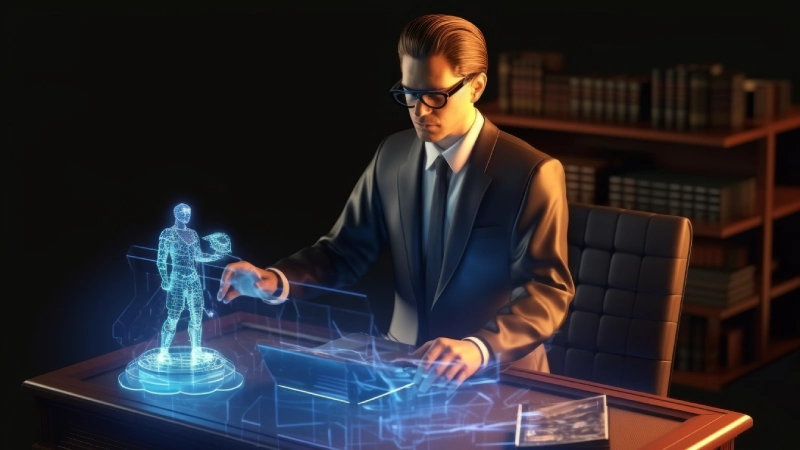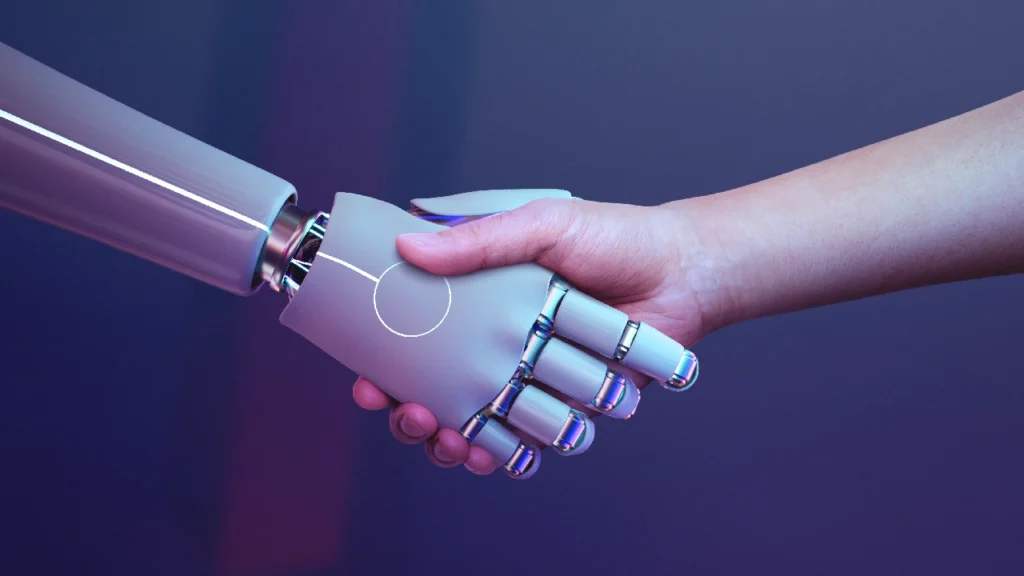Table of Contents
Highlights:
- AI-powered legal assistants like Clear brief & Harvey handle routine tasks, letting paralegals focus on higher-value work.
- Despite efficiency, AI can make errors—paralegals ensure accuracy, context, and ethics.
- Legal AI is creating hybrid roles such as AI oversight specialists and legal tech operators.
- Experts agree AI won’t replace paralegals but reshape their roles; firms blending AI + human skills will succeed.
The legal sector is no exception to the rapid transformation of artificial intelligence in other industries. AI-powered legal assistants now do duties that were previously thought to be the sole purview of human professionals, such as managing timetables, preparing documents, summarizing cases, and extracting important information from vast amounts of legal material. But does this development mean paralegals are in danger? Or are their responsibilities being redefined in front of us? This essay examines the effects of AI on legal workflows, the implications for paralegal professions, and the continued importance of human interaction.
The Rise of AI in Legal Work
AI-powered legal assistants are computer programs created to automate and simplify certain parts of legal work. These tools are far more than just templates; they can perform legal research, develop and improve contracts, evaluate intricate legal documents, and even find precedents. Attorneys and paralegals can more efficiently match claims with evidence by using tools like Clear brief, which connect directly to word processors.

Others, like Harvey or Cocounseling from Case text, use retrieval-augmented generation (RAG) and natural language processing (NLP) to provide precise summaries of statutes or court decisions and to respond to legal queries. One such instance is the use of Clear brief in a civil rights case, when a lawyer attributed a $1.5 million verdict to the AI assistant’s ability to organize facts more persuasively than a person could in the same amount of time.
Automation of Routine Tasks
The capacity of AI systems to automate time-consuming, repetitive operations is one of its greatest attractions. AI is now able to handle a lot of the jobs that paralegals used to do more effectively, like evaluating papers, organizing case files, and performing research.
For example, AI-driven systems have made it possible to perform document review, which is frequently one of the most time-consuming aspects of litigation, at scale. In only a few minutes, programs like LawGeex and Relativity can analyze hundreds or thousands of pages, identifying important phrases, inconsistencies, and risk factors. In a similar vein, AI can help with contract drafting by automatically redlining changes between versions and recommending phrasing based on current legal frameworks.

Why Human Judgment Still Matters
Although AI is capable of reproducing some activities, it is devoid of emotional intelligence and contextual awareness, two abilities that are still vital in the legal field. The link between lawyers, clients, and judicial processes is frequently paralegals. AI cannot replace their capacity to handle delicate discussions, read a client’s tone, or counsel lawyers on sound tactics.
Accuracy is still another important issue. Even with their amazing powers, artificial intelligence (AI) systems can nonetheless produce false or erroneous legal information with confidence. In legal contexts, where inaccurate citations or improperly applied precedents might have dire repercussions, this danger is substantial. Indeed, a recent study shown that, without enough supervision, even AI programs created especially for legal usage might have up to 30% of their references experience hallucinations. Judges have cautioned lawyers against relying too much on AI, pointing to cases in which ChatGPT and other generative tools were used to construct entire cases.
Legal practitioners are subject to ethical duties in addition to accuracy. According to the American Bar Association, a licensed attorney must oversee and verify all legal work, whether it is done by a human or a machine. Therefore, a human paralegal or lawyer must guarantee the correctness, relevance, and appropriateness of any document or legal argument proposed by an AI tool.

Industry Sentiment and Real-World Adoption
Events and surveys in the legal sector show an increasing interest in the deployment of AI. Panelists at Legalweek 2025 stressed that AI is here to stay and that legal teams that don’t adjust run the risk of falling behind. To monitor and verify AI outputs, some law firms are already employing AI specialists, who are frequently former paralegals with legal tech training. Others are developing hybrid positions that combine project management for technology with legal research.
Startups like Harvey have raised millions of dollars to create AI systems that can do anything from prepare depositions to write legal memos. AI is being used by business legal departments as well to expedite compliance tasks and lower the expense of hiring outside counsel. However, the majority of experts concur that AI is a collaborator, not a substitute, even among early adopters.
New Opportunities for Paralegals
For paralegals who are flexible, the incorporation of AI creates a lot of chances. Instead of being displaced, many are becoming “legal tech operators” or “AI verification specialists,” helping attorneys with AI system optimization, auditing, and training. These positions are more visible within companies and come with better pay.

Furthermore, paralegals can now make a more significant contribution to the strategic development of cases as AI takes on a greater portion of the administrative burden. Their time might be better used in areas where AI is inadequate, such as preparing trial exhibits, reviewing court decisions, or participating in complex legal debates.
Upskilling is key. Paralegals who invest in understanding how AI tools work, including prompt engineering and data validation, are likely to remain in demand. Several certification bodies, such as the National Association of Legal Assistants (NALA) and the National Federation of Paralegal Associations (NFPA), are beginning to offer courses focused on legal technology and AI use in law.
Risks and Ethical Considerations
AI has potential, but there are also moral and legal concerns. Inadequate supervision of AI-generated work might lead to malpractice or disciplinary action for both lawyers and paralegals. A lawyer gained global attention and severe sanctions in 2023 after delivering a legal brief that was filled with fictitious cases created by ChatGPT. Another issue is data privacy. Sensitive client information is frequently included in legal data, and AI systems, particularly those that run in the cloud, are subject to stringent confidentiality regulations. If this data is misused or compromised, law firms may be held legally liable.
Additionally, an over-reliance on AI runs the risk of weakening fundamental abilities. Junior paralegals may lose out on opportunities to hone their communication, critical thinking, and judgment abilities if they start their careers only relying on technology for research or drafting.

Collaboration, not replacement
The majority of experts concur that while AI won’t replace paralegals, it will change what it means to be one. Legal teams will probably grow more tech-savvy, leaner, and more efficient. Businesses that use AI in conjunction with their human employees, rather than as a substitute for cost-cutting measures, will reap the biggest rewards.
In the future, paralegals will serve as legal technologists as well as legal assistants, curating AI output, ensuring correctness, and interpreting human context. Instead of marking the end of the paralegal profession, the emergence of AI marks the start of a more intelligent and strategic one.
Conclusion
Though not in the way that many anticipated, AI-powered legal assistants are revolutionizing the legal sector. These tools are enabling paralegals to advance up the value chain rather than making them obsolete. Artificial intelligence (AI) is enabling paralegals to perform more meaningful, judgment-driven work by automating monotonous processes and boosting productivity.
A hybrid approach that combines computer intelligence and human skill is the way of the future for legal practice. Paralegals are thriving in this vision, not merely getting by.